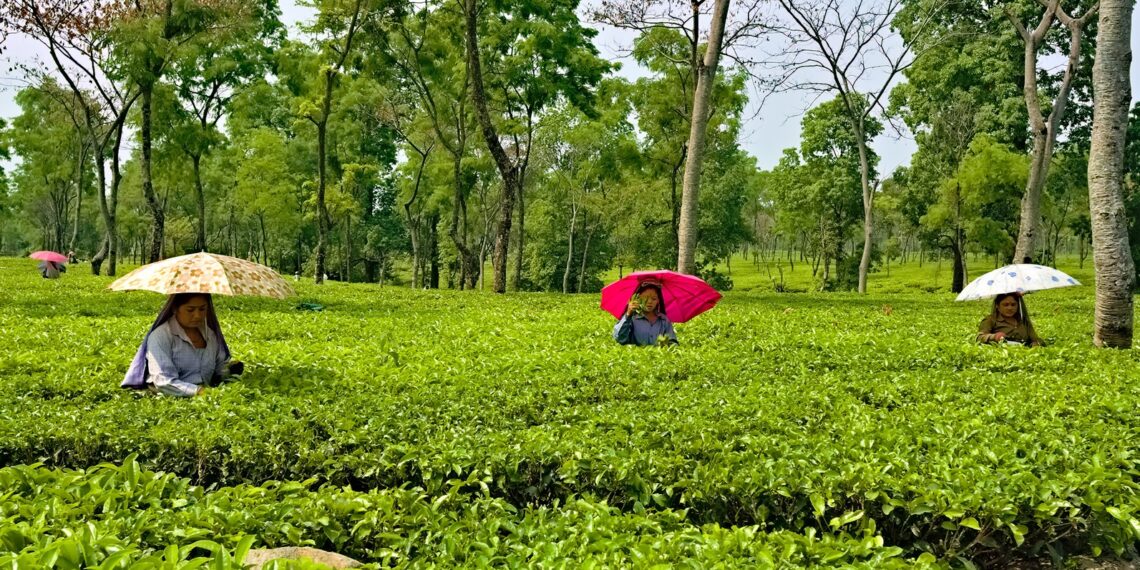GUWAHATI: India’s tea industry has witnessed a sharp decline in production in key tea-producing regions, particularly Assam and West Bengal.
This was revealed by Tea Board of India, stating that Assam witnessed a staggering 40% drop in production, while West Bengal saw a dip of a substantial 23% up to March 2024 compared to the same period last year.
The decline in production has been attributed to adverse weather conditions, with the region experiencing a scarcity of rainfall and soaring temperatures.
Reports suggest that the persistent lack of rainfall has resulted in widespread wilting of tea bushes, further exacerbating the prospects of crop loss in the coming months.
If adequate and evenly distributed rainfall is not received soon, experts fear that crop losses could surpass 50% in the near future.
Meteorological data from the India Meteorological Department (IMD) has underscored the severity of the situation, revealing a significant shortfall in rainfall from March 1 to May 13 in the major tea-growing districts of Assam and West Bengal.
Compared to normal rainfall levels for this period, districts have experienced reductions ranging from 2% to a staggering 76%.
The timing of this production decline couldn’t be worse for the industry, as it coincides with the crucial first flush and second flush seasons.
These seasons are vital for producing high-quality teas, and any loss during this period is expected to have severe repercussions on the cash flows of tea companies.
Compounding the industry’s woes is the lack of a corresponding increase in tea prices despite the substantial drop in production.
While there has been a marginal improvement in the average price at All India Auctions in recent sales, the weekly average price has seen a decrease ranging from Rs 6 to Rs 33 since the beginning of the calendar year.
This phenomenon starkly contrasts with the scenario observed in 2020 when a drop in production due to COVID-19 closures led to a sharp rise in tea prices.
In response to these challenges, the Tea Association of India has welcomed recent notifications and actions by the Food Safety and Standards Authority of India (FSSAI) aimed at ensuring compliance in tea production.
The association views these proactive measures as crucial steps towards establishing a standardized regulatory framework for the industry.
With collaboration between the Tea Board and FSSAI, stakeholders anticipate the establishment of a level playing field that will facilitate the availability of compliant teas in the market.
Both regulatory bodies are working towards streamlining food safety regulations, as evidenced by recent directives and advisories issued to industry stakeholders.
Despite the resolve expressed by industry players and regulators to prioritise compliance, there are concerns about the potential impact on production.
However, stakeholders are committed to navigating these challenges and ensuring the availability of safe and compliant teas for consumers nationwide.















